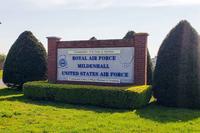The U.S. could wait until this summer to reach an agreement with Afghanistan on a pact allowing U.S. forces to remain past 2015, but NATO allies could not, Gen. Martin Dempsey said Wednesday.
"It really needs to be done now," Dempsey, chairman of the Joint Chiefs of Staff, said of the new Bilateral Security Agreement that President Hamid Karzai has thus far refused to sign.
The U.S. could wait "until probably early summer," but more delay would lead NATO allies to reconsider, Dempsey said at a Pentagon briefing. There would be an "erosion" of the coalition that has agreed to stay in an advisory and training role at the end of 2014, when all U.S. and NATO combat forces are scheduled to withdraw, Dempsey said.
A traditional "loya Jirga" of Afghan tribal elders and political leaders last week approved a new BSA for a post-2014 U.S. presence that would not subject U.S. troops to Afghan jurisdiction for any crimes they might commit, but Karzai has demanded more assurances that U.S. troops would not enter Afghan homes.
The basic outlines of the agreement called for a remaining U.S. force of 8,000-12,000 troops bolstered by coalition partners for a total force of about 15,000.
When pressed to sign by White House National Security Adviser Susan Rice, Karzai said he might pass on the decision to a successor to be elected in April. Dempsey sidestepped on whether Afghanistan’s defense minister or another Afghan official might sign the BSA instead of Karzai.
"I suppose the lawyers can figure that out," Dempsey said.
In a testy meeting in Kabul with Karzai last month, Rice warned him that the U.S. might exercise the so-called "zero option" of totally ending U.S. involvement in Afghanistan unless a new BSA was signed by Dec. 31.
"I have not been told to plan for a zero option but clearly I understand the possibility given the current impasse," Dempsey said.
With or without an agreement, the current U.S. force of about 47,000 troops was expected to come down to about 34,000 in February.
The U.S. had been speeding up the withdrawal of equipment ahead of the pullout of all combat forces, but the exit route through Pakistan was shut down this week to avoid Pakistani protests against drone strikes that blocked the roads to the port of Karachi.
"We have voluntarily halted U.S. shipments of retrograde cargo to ensure the safety of the drivers contracted to move our equipment," a Pentagon spokesman said.

























